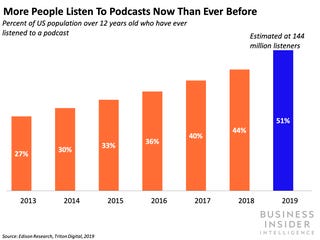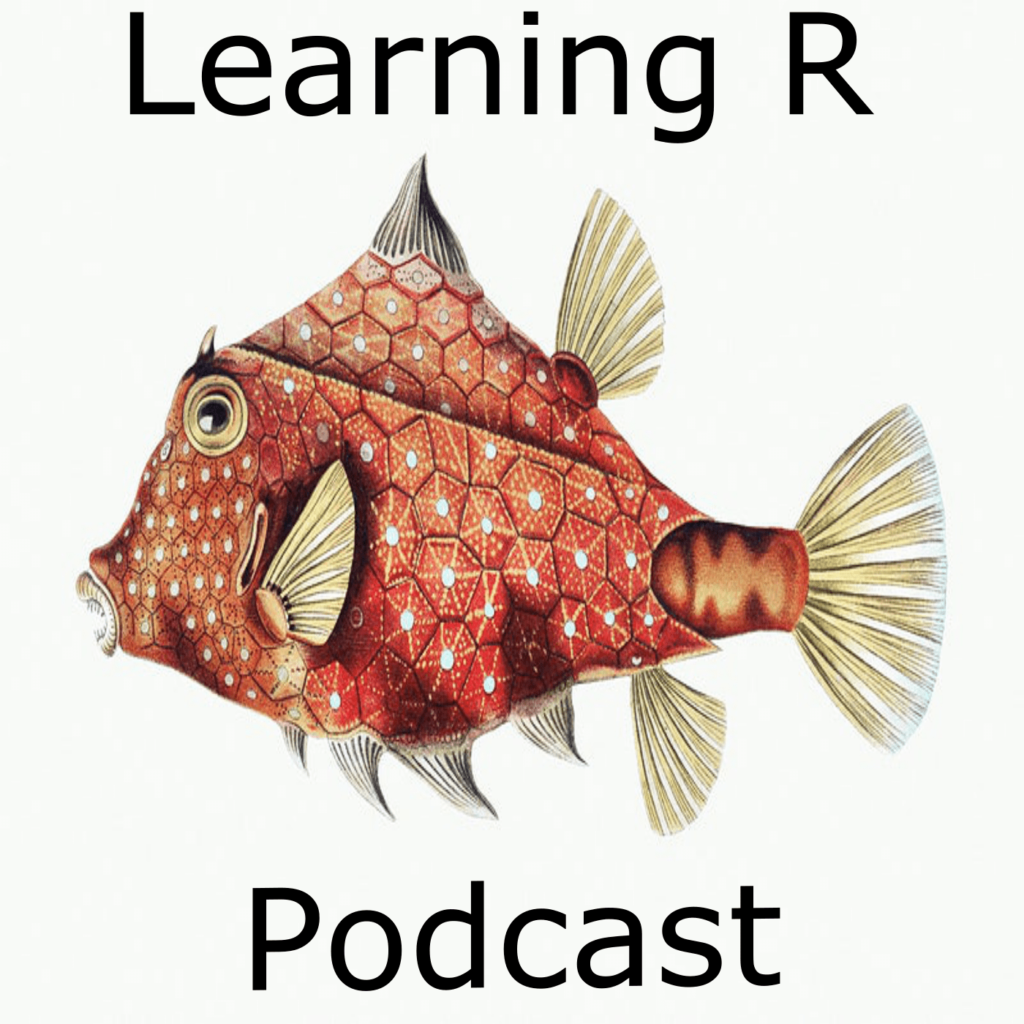You may have noticed that podcasting is having a bit of a moment: it used to be a faff to download podcasts to your computer then sync with your iPod/other player. However, the rise of the smart phone has solved that issue with software handling automatic downloads from the web so the latest podcast in a series is always on your phone waiting for you.
This has enabled a steady year on year rise in the numbers using podcasts over the last decade, users are listening on commutes and other dead time when they can’t read or watch anything.

A characteristic of this audio consumption is that it holds the user’s attention better – people can easily click away when they’re watching a video in a browser or scanning some text but this happens less to those listening to audio. These factors mean that podcasts are ripe for use in education, uses in language learning are well known and common but podcasts could serve a number of purposes in all topic areas:
- Extra material for a module especially one-on-one discussions or interviews
- Summarys of teaching sessions or of feedback to a whole class on an assignment
- Revision
- Individual feedback on an assignment (although this is not strictly podcasting but just use of audio)

With that in mind I’ve been experimenting by producing a podcast about learning R programming to investigate the practicalities in education (webpage and feed for putting into your podcasting app).
In educational terms, this is what I’d term a ‘sidecar’ podcast, its meant to cover general topics of interest to anyone learning R programming for the first time, its not specifically tailored to a particular course (in falls in section [1] of my list above). Because of the organisation involved and because of Covid lockdown, I’ve done it on my own. I think a two way discussion between presenter and interviewer or just a two way discussion would be a nice alternative. My ex-colleagues at the OU run a lovely example combining learning about pedagogy through the lens of TV/film with two main presenters and the occaisional guest expert.
Practicalities:
Podcasting is relatively simple to produce compared to video or multimedia. However, it certainly isn’t as simple as text. There are plenty of resources on how to do it but here are some quick pointers I picked up:
- Quality Mic: Invest in a quality microphone, listening to poor quality audio, especially on a commute with lots of background noise, is tiring for the student/user. A blue Yeti second hand will set you back about 60 pounds.
- Summarising or repeating content (in some way that avoids being boring) is helpful for understanding in a podcast – users tend not to track back to listen to something again in the way they would with text.
- Intonation: Speak in an informal way and try and vary intonation: users are missing the visual clues of your face mouthing the words and this makes up for it. Unless you really know what you’re doing, avoid reading from a script, it comes out dull and lifeless.
- Editing Sofware: To edit out ‘umms’ and ‘errs’ and prepare your content, Audacity is free and has proved fine for my use.
- Hosting: I hosted Learning R on my own WordPress site, using Seriously Simple podcasting. For a first go podcast, there are plenty of free hosting packages available such as podbean.